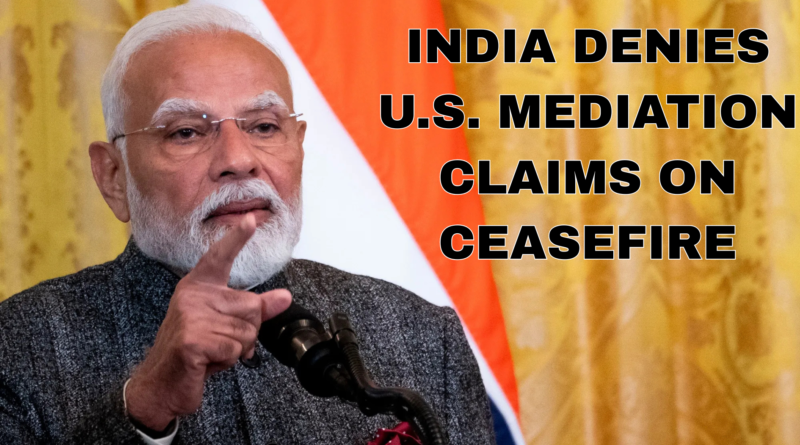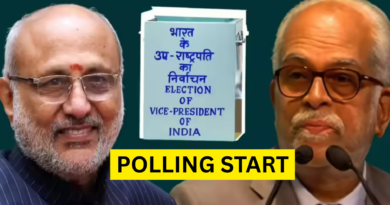INDIA DENIES U.S. MEDIATION CLAIMS ON CEASEFIRE
India has firmly pushed back against assertions made by former U.S. President Donald Trump, who suggested that American intervention was key in convincing New Delhi to halt Operation Sindoor. The claim, which quickly gained media traction, was swiftly and unequivocally dismissed by Indian Defence Minister Rajnath Singh. He maintained that the decision to conclude the operation was solely India’s sovereign choice, driven by strategic calculations and not foreign influence.
Operation Sindoor, which was launched amid heightened regional tensions, had clear military and political objectives. Rajnath Singh clarified that all pre-set targets had been achieved before the ceasefire was announced. “India does not operate under foreign pressure,” he said during a press briefing. “We ended the operation after ensuring our national interests were secured.”
Trump’s claim, made during a campaign rally, stirred controversy by implying that his past diplomatic efforts and rapport with world leaders were instrumental in preventing further escalation. However, Indian officials characterized the statement as an attempt to politicize and exaggerate the former president’s role in international affairs for domestic electoral gain.
Several Indian strategic experts also weighed in, asserting that Operation Sindoor had reached a natural conclusion. Analysts pointed out that India’s decision was based on ground-level military assessments and a timely evaluation of geopolitical risks. Any suggestion of third-party influence undermines India’s status as a decisive and sovereign power in the region, they argued.
The Ministry of External Affairs echoed the Defence Minister’s stance, calling Trump’s remarks “factually incorrect and diplomatically inappropriate.” An official statement from the ministry reiterated that no foreign nation, including the United States, had any role in the ceasefire decision or military strategy.
Opposition parties in India have also urged the government to present official documentation regarding Operation Sindoor’s timeline and objectives, in order to put all speculation to rest. However, most mainstream political voices have united in rejecting Trump’s narrative, defending the integrity of India’s defense policies and diplomatic independence.
The controversy has opened a broader debate about the politicization of foreign policy in U.S. electoral politics. Critics argue that past leaders often overstate their global influence for political mileage, with little regard for factual accuracy or diplomatic nuance. This incident has only reinforced India’s cautious approach in engaging with election-season rhetoric from foreign powers.
In closing, Rajnath Singh emphasized that India will continue to act based on its national interests and will never allow misinformation to dictate its security choices. “India’s military operations begin and end on our terms,” he asserted. “We do not need validation from anyone to defend our borders and our people.”




